August 31, 2025 | 09:09 GMT +7
August 31, 2025 | 09:09 GMT +7
Hotline: 0913.378.918
August 31, 2025 | 09:09 GMT +7
Hotline: 0913.378.918
Dong Thap province, often referred to as the mango capital of the Mekong Delta, boasts the largest mango cultivation area in the region, covering nearly 18,000 hectares. Each year, local farmers harvest approximately 200,000 tons of mangoes to serve both domestic consumption and export markets. However, along with this impressive output comes a significant amount of agricultural by-products, estimated at 60,000 to 75,000 tons annually, including mango peels, seeds, and pulp left over from processing activities. The challenge is how to turn this agricultural waste into a valuable resource.
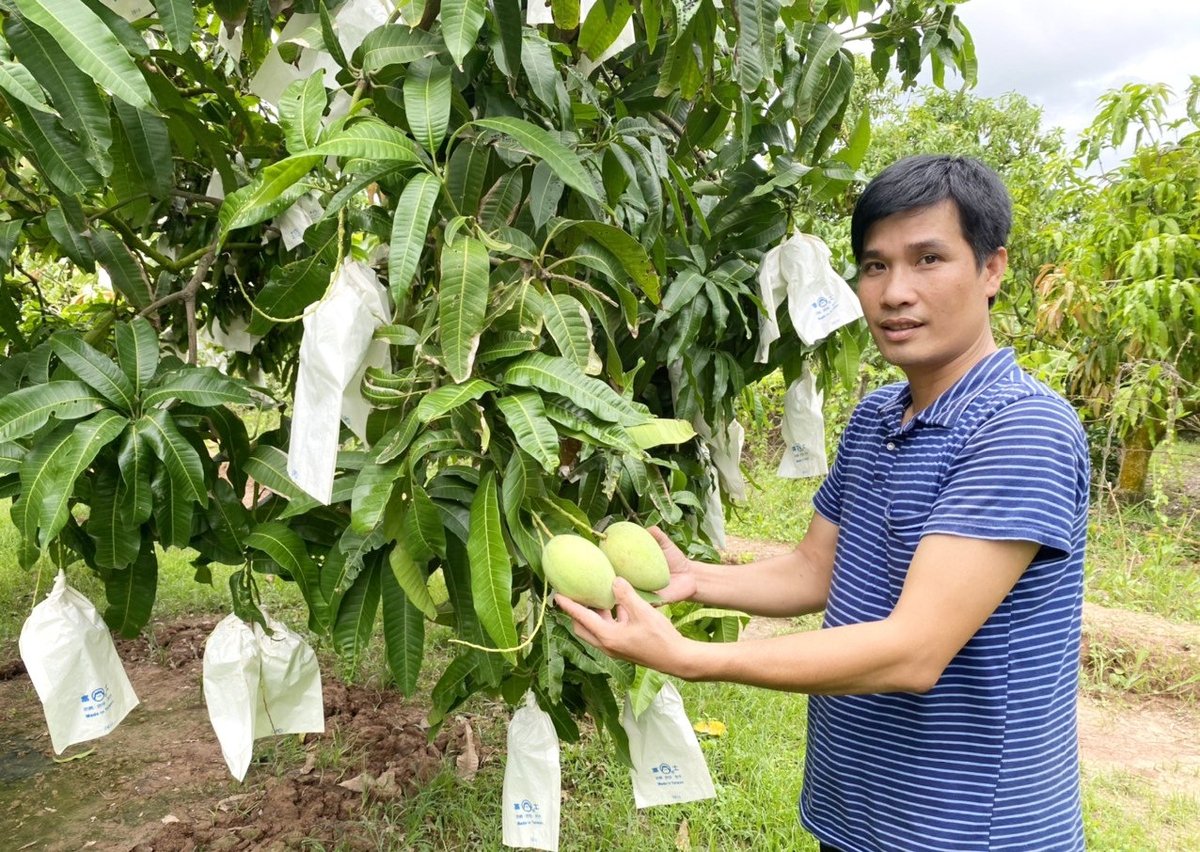
Dong Thap has nearly 18,000 hectares of mango orchards, producing around 200,000 tons of fruit annually. This is accompanied by approximately 60,000 to 75,000 tons of by-products such as peels, seeds, and pulp generated during post-harvest processing. Photo: Le Hoang Vu.
To address this pressing issue, Dong Thap province is currently implementing a scientific research project titled “Optimizing the production process of organic biofertilizer from mango by-products.” This project is carried out by the Southern Horticultural Research Institute in collaboration with the Dong Thap Department of Science and Technology, aiming to find sustainable solutions to manage the substantial amount of mango waste generated annually.
According to Dr. Nguyen Thi Ngoc Truc, Head of the Agronomy Department at the Southern Horticultural Research Institute, mango by-products can account for as much as 30 to 50 percent of the total fruit weight. If these by-products are not properly treated and managed, they can become a significant source of environmental pollution.
The research project leverages beneficial microorganisms, including Trichoderma fungi, nitrogen-fixing bacteria, and various biological enzymes, to accelerate the breakdown of organic materials found in mango peels, seeds, and pulp. Through this process, the agricultural waste is transformed into a nutrient-rich organic biofertilizer. This biofertilizer not only enhances soil fertility and structure but also promotes sustainable and healthy crop growth.
The use of indigenous microbial agents makes the treatment process more environmentally friendly and practical under local farming conditions in Dong Thap. Encouragingly, the research has already yielded successful results and has been adopted for real-world application by Dong Thap Agriculture and Biofuel Co., Ltd.
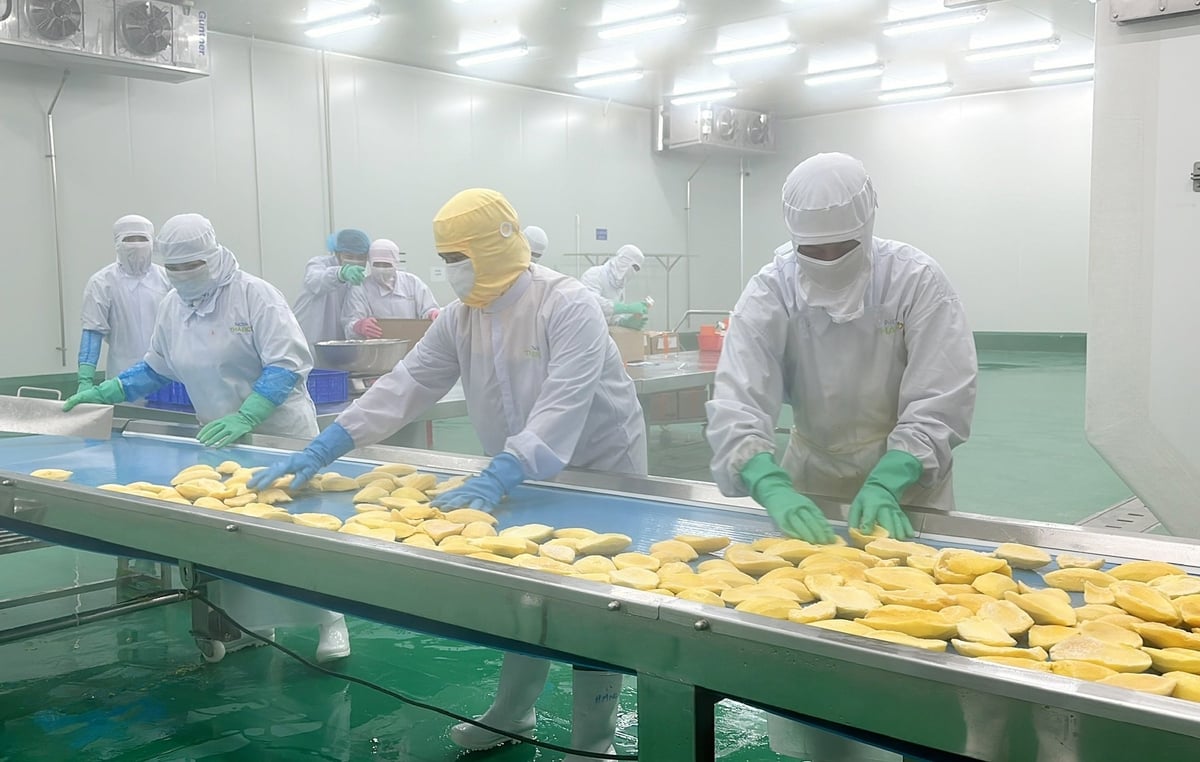
Mango processing for export in Dong Thap. Photo: Le Hoang Vu.
Mr. Tran Ngoc Phuc, Director of Dong Thap Agriculture and Biofuel Co., Ltd., stated: “I was born and raised in the mango-growing region of Cao Lanh. The research results on converting mango by-products into organic fertilizer show great potential for supporting agricultural production. With abundant raw materials available, the factory is expected to produce an average of 30 tons of organic fertilizer per day, equivalent to 9,000 tons per year. This will help process a large volume of mango waste and supply high-quality organic fertilizer to support crop production throughout the province.”
According to Mr. Phuc, preliminary calculations indicate that the company’s annual revenue from organic fertilizer production could reach tens of billions of Vietnamese dong, while significantly reducing the amount of agricultural waste discharged into the environment. Beyond economic benefits, the use of organic fertilizer also helps farmers reduce production costs and improve soil fertility, thereby increasing both the yield and quality of agricultural products.
Mr. Nguyen Thai Binh, Deputy Director of the Dong Thap Department of Science and Technology, commented that the enterprise's proactive adoption of the research results on mango by-products for commercialization is a very encouraging step forward. This exemplifies how science and technology, when closely aligned with practical needs, can achieve effective results.
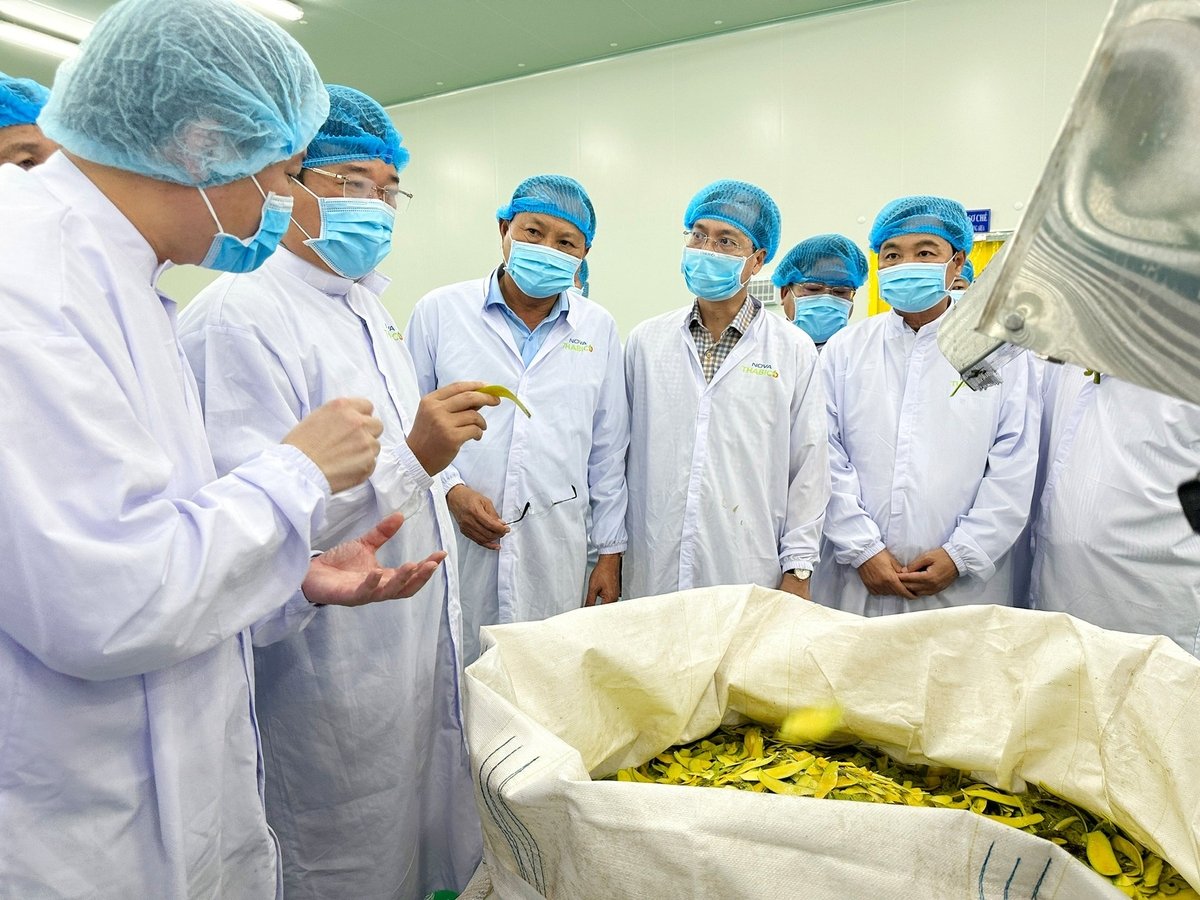
Mango peels processed into organic fertilizer have great potential to support agricultural production. Photo: Le Hoang Vu.
It is encouraging that the cycle of turning mango fruit into organic fertilizer, which is then used to nourish mango trees or other crops, creates a genuine circular economy model. Particularly, as Dong Thap is currently undergoing agricultural restructuring and aiming for green development, this approach represents a strategic direction that contributes significantly to environmental protection and increases farmers’ incomes.
In the long term, Dong Thap province aims to build strong and sustainable linkages between farmers, enterprises, and scientific researchers. By creating a clear understanding of the benefits that organic fertilizer brings, such as cost savings and improved crop quality, farrmers will be willing to make the switch. This, indeed, is the greatest success of the project.
Translated by Phuong Linh
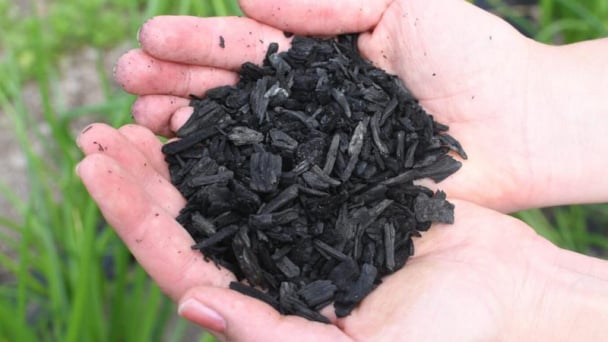
(VAN) This is the opinion of the first Vietnamese enterprise recognized for biochar carbon credits, opening a pathway for circular agriculture development and billion-dollar opportunities.
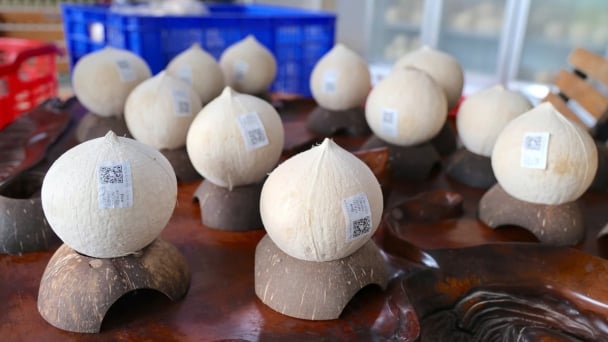
(VAN) Viet Coconut Cooperative 78 has built the brand 'Tay Ninh peeled coconut', pioneering the use of QR codes on each fruit and opening the way for local coconuts to reach larger markets.
/2025/08/28/3715-2-002414_57.jpg)
(VAN) The success of Moc Chau farmers has been significantly supported by international organizations, which have introduced techniques and models for farmers to apply to their production.
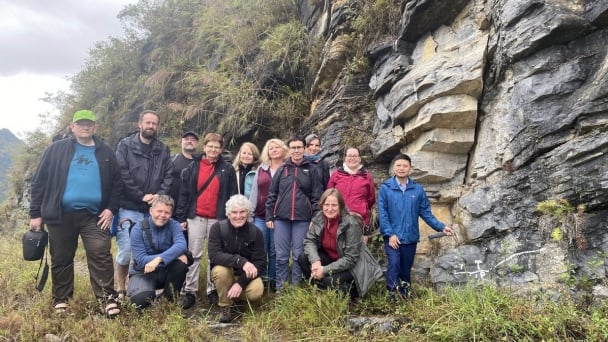
(VAN) Conserving and sustainably utilizing geological heritage at the Dong Van Karst Plateau Global Geopark will drive economic development in upland regions.
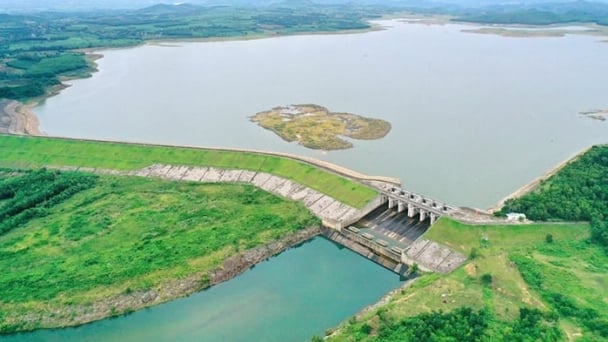
(VAN) In the face of climate change, rapid urbanization, and rising pollution, deploying advanced technologies is an urgent solution for sustainable water resource management.
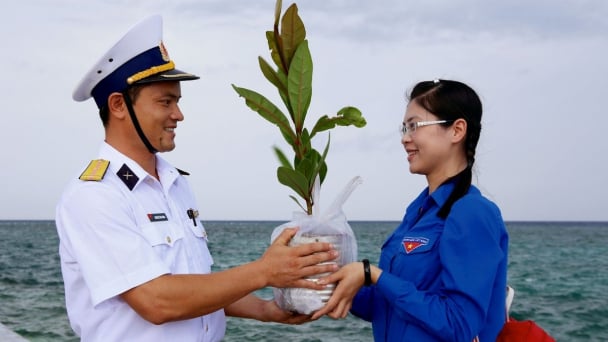
(VAN) MB launched the 'Million green landmarks' campaign to raise funds for tree planting, aiming to green the Truong Sa archipelago and contribute to safeguarding maritime sovereignty.
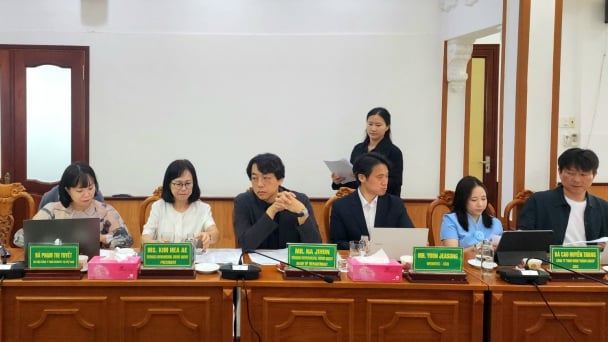
(VAN) A proposed waste-to-energy plant initiative has captured the attention of South Korean enterprises, thereby creating opportunities for collaboration in renewable energy, amidst the increasing pressure to manage waste.